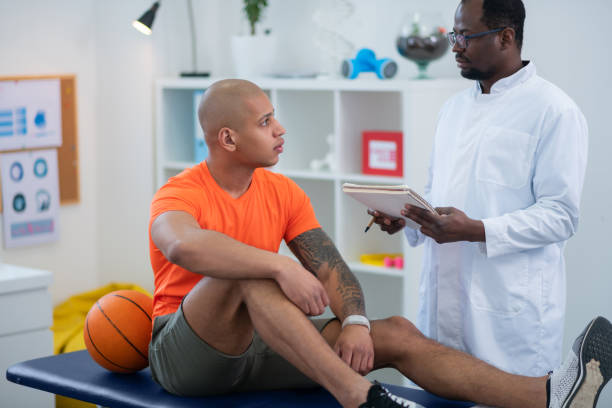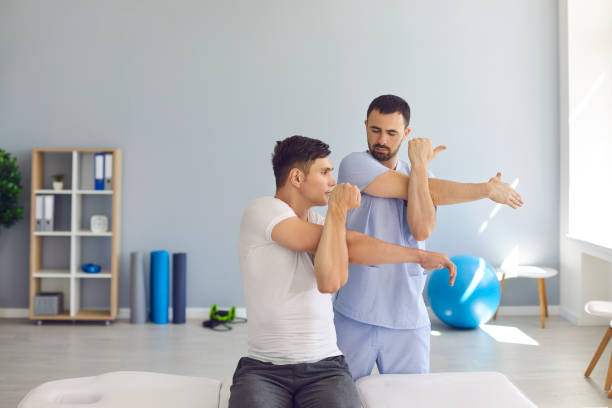A strong athlete-physiotherapist relationship is essential for effective treatment of injuries and shaping athletes’ expectations during injury rehabilitation. Physio Bundoora possess sport-specific expertise that aids in this process.
They are also skilled in identifying and addressing modifiable risk factors for injury and creating training programmes to optimise athletic performance.

Prevention
Injuries are a part of sport, and even seasoned athletes can suffer from sports injuries ranging from sprains to torn tendons and ligaments. When athletes are injured, they often seek help from a healthcare professional who can get them back to their regular activities as quickly as possible. At Ortho Miami, our sports medicine physicians and physical therapists work together to provide patients with a complete injury management solution.
While most people seek physiotherapy after suffering from an injury, Physio Bundoora are also heavily involved in the prevention of sports injuries. Using their deeper understanding of exercise science, physiology, and biomechanics, they are well-equipped to spot muscle instability or weaknesses that may lead to injury. They are then able to devise prevention programs that include proper warm-ups and cool-downs, specific exercises to strengthen core muscles, and techniques to improve balance and proprioception.
These preventative measures are designed to help reduce the risk of minor injuries like torn ligaments, sprains, and cramps that occur while participating in sporting activities. However, they are not a replacement for regular medical care and should always be sought out before an injury occurs. This is particularly important when it comes to injuries that involve a more serious, potentially recurrent or chronic condition such as a torn tendon or ligament. This is because a recurrence of an injury can increase the time it takes to make a full recovery.
Assessment
Injuries are a common problem among athletes and sports enthusiasts. Physiotherapists, who are part of the sports medicine team, assess and treat these injuries to help athletes recover faster and return to their sports activities. They also teach their patients preventive techniques to minimize the chances of injury.
Athletes want to achieve their peak performance in their sport and they would love to do everything possible to reach this goal. However, they also fear the consequences of getting injured and losing their competitive edge. This is why they seek medical care from doctors who specialize in sports medicine to ensure their safety and health.
Sports physical therapists can create an individual treatment plan for each athlete based on their evaluation. They are able to provide their patients with exercises that are designed to improve the strength and flexibility of their muscles. In addition, they are able to recommend specialized exercises that can reduce the risk of injury during specific movements in each athlete’s sport.
Moreover, the sports medicine experts also provide consultations to athletes regarding chronic illnesses that may affect their physical ability. For example, they can treat asthma and diabetes to improve the athlete’s quality of life. A good relationship between the athlete and the physiotherapist is crucial in the successful outcome of the rehabilitation program.

Treatment
The treatment team in sports medicine includes physicians, physical therapists, certified athletic trainers, and exercise specialists. They work together to help athletes of all ages and abilities get back in the game as quickly as possible. They are also prepared to assist with more invasive procedures if necessary.
Physiotherapists are skilled in creating a plan of action that will address an individual’s specific needs and injuries. This may include exercises to improve flexibility, strength, and coordination. They also use modalities such as heat or cold to reduce inflammation and speed healing. They often prescribe non-steroidal anti-inflammatory medications to alleviate pain and facilitate recovery.
In addition to treating injuries, Physio Bundoora often work with elite athletes to enhance their performance. This can involve developing a training schedule that is tailored to the athlete’s specific goals and needs. They can also provide guidance on nutrition, hydration, and mental fitness.
Despite the best efforts of sports medicine professionals, some athletes will suffer from injuries that cannot be fully healed. When this occurs, the Physio Bundoora will be responsible for helping the athlete to understand and accept their limitations. They can also recommend methods to reduce the risk of future injury, such as correcting training techniques and using effective protective gear.
Rehabilitation
A sports medicine physiotherapist can also use their knowledge of the nature of different sports and the human body, clinical reasoning skills, and therapeutic interventions to design, implement, evaluate, and modify treatment programs that will allow athletes to return to their sport with minimal or no risk of further injury. They are skilled in designing and implementing specific exercises, strengthening, stability, proprioceptive training, and movement pattern changes to improve an athlete’s performance.
During the evaluation phase, the physical therapist will usually ask about your history of sports or exercise participation and any previous injuries you’ve had. They’ll also conduct a thorough examination to assess your range of motion, your strength, and (if applicable) your overall mechanics during various sports-related movements such as running or jumping. A variety of other special tests may also be used to help the physiotherapist home in on an accurate diagnosis.
In professional sports environments, the physiotherapist is generally part of a team of medical professionals looking after the team and the athletes. These can include specialty physicians (orthopaedic surgeons, emergency medicine physicians, or general practitioners) and certified athletic trainers.